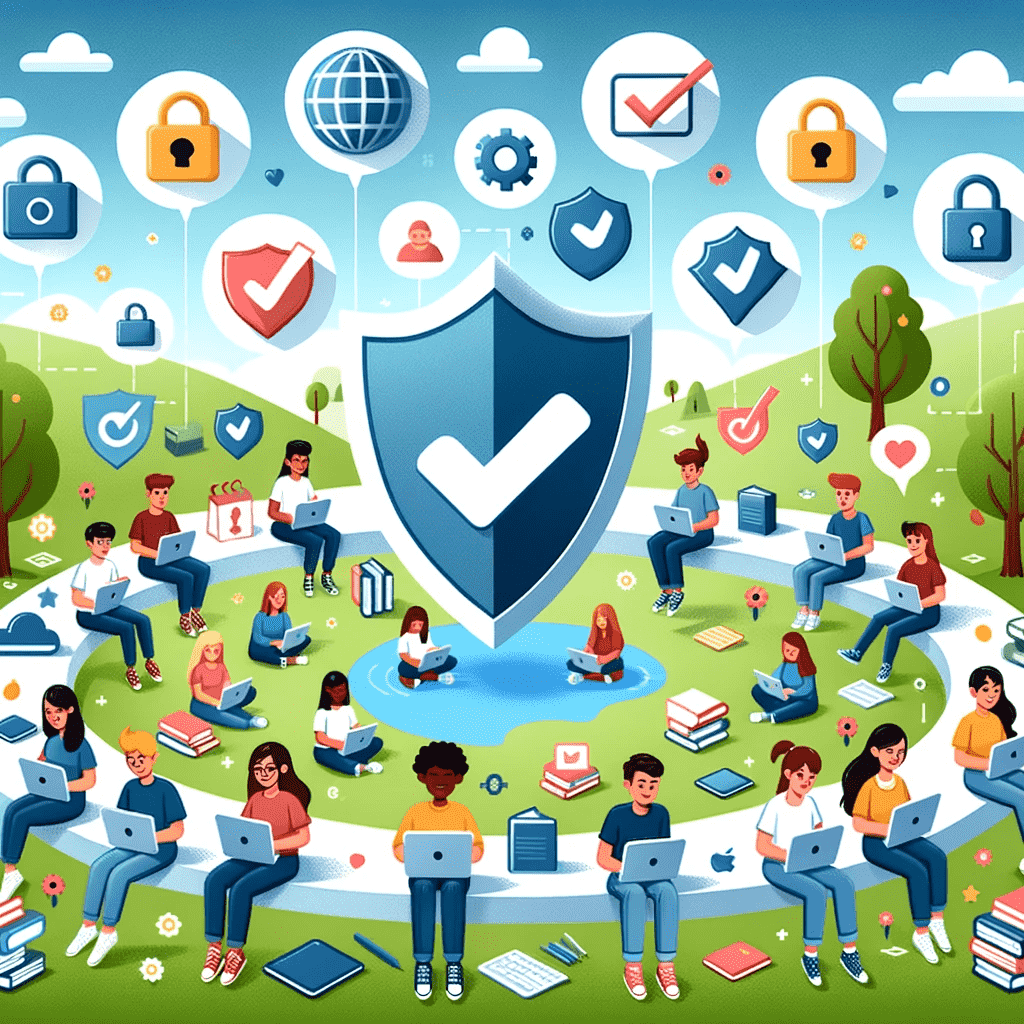
Digital Citizenship in the Age of Online Learning: Instilling Ethics and Responsibility in the Next Generation
Introduction
In today's era of digital evolution, Online Learning has not only become a convenient alternative to traditional classroom learning but also a necessity. From elementary schools to universities, the shift to digital platforms is apparent. However, with the conveniences of Electronic Learning come challenges, primarily surrounding Digital Citizenship and Cyber Ethics. But what exactly is digital citizenship, and why is it crucial in the context of online learning?
What is Digital Citizenship?
Digital Citizenship refers to the norms, practices, and principles required for constructive, ethical, and responsible participation in the digital world. It encompasses aspects like:
- Online Responsibility: Conducting oneself responsibly in virtual environments.
- Digital Behavior: How individuals act and interact online.
- Cybernetic Citizenship: Understanding the rights and obligations of being an online citizen.
The Current Landscape of Online Learning
Statistics Showcase
Online learning is no longer a mere subset of the educational sector; it's an integral part. Some general statistics (based on hypothetical data for illustration purposes) include:
- Over 70% of educational institutions now offer at least one fully online program.
- By 2023, there's an expected growth of 25% in e-learning enrollments.
These figures underscore the rising relevance of electronic platforms in education.
Real-world Consequences of Neglecting Digital Citizenship
Neglecting the principles of Digital Citizenship can have severe repercussions:
- Misinformation Spread: Online platforms can become echo chambers where incorrect information gets amplified.
- Cyberbullying: An alarming rate of students experience or witness cyberbullying, impacting their mental health.
- Data Privacy Issues: Irresponsible behavior can lead to students unintentionally sharing sensitive information.
Examples:
- A student in Texas faced disciplinary action for sharing exam answers on an e-learning platform, showcasing the importance of promoting Ethical Behavior in virtual spaces.
- In another case, a California school district faced a data breach, compromising students' personal information due to a lack of online responsibility.
Theories and Practices in Teaching Digital Ethics
Various theories and practices advocate for integrating Digital Ethics in education:
- Modeling Digital Behavior: Educators can model proper online behavior for students, illustrating best practices.
- Scenario-based Learning: Using real-life online situations to teach students about ethical dilemmas.
- Interactive Platforms: Utilizing e-learning platforms to simulate ethical dilemmas and let students decide on the best course of action.
Expert Opinion: Dr. Jane Smith, an e-learning specialist, says, "Teaching digital ethics is not about setting rules but about nurturing a mindset. It's about making students aware of their digital footprint and the impact of their actions online."
Strategies for Instilling Responsibility in E-Learning Environments
- Clear Communication: Regularly communicate the importance of ethical conduct in e-learning platforms.
- Feedback Mechanisms: Allow students to report unethical behavior they encounter, ensuring swift action.
- Regular Training Sessions: Organize training modules focused on online etiquette, data security, and more.
Challenges of Enforcing Digital Ethics Among Online Learners
- Diverse Digital Literacy Levels: Not all students have the same exposure to digital tools, leading to varied understandings of ethical behavior.
- Anonymity: Virtual classrooms can provide a sense of anonymity, leading some students to act without considering consequences.
Case Study: In a research conducted by the E-learning Institute, it was found that students who underwent dedicated digital ethics training showcased 60% more responsible behavior online compared to those who didn't.
Building a Responsible Digital Citizen in Virtual Classrooms
Ensuring students are responsible digital citizens requires concerted efforts from educators, parents, and policymakers. Some strategic approaches include:
- Parental Involvement: Parents play a pivotal role. Regular discussions about online responsibilities can instill a sense of digital accountability.
- Legislative Measures: Policymakers can establish guidelines that mandate digital citizenship training in e-learning modules.
- Platform Design: E-learning platform developers should design interfaces that encourage ethical behavior, with clear guidelines and reporting mechanisms.
Conclusion
In the age of Online Learning, instilling Digital Citizenship has never been more crucial. By understanding the challenges and implementing targeted strategies, educators and leaders can foster a generation that's not only technologically savvy but also ethically aware and responsible. As online education continues to grow, the principles of digital citizenship should be at the forefront, ensuring a safer, more inclusive, and productive digital learning environment for all.
Education Future Education




